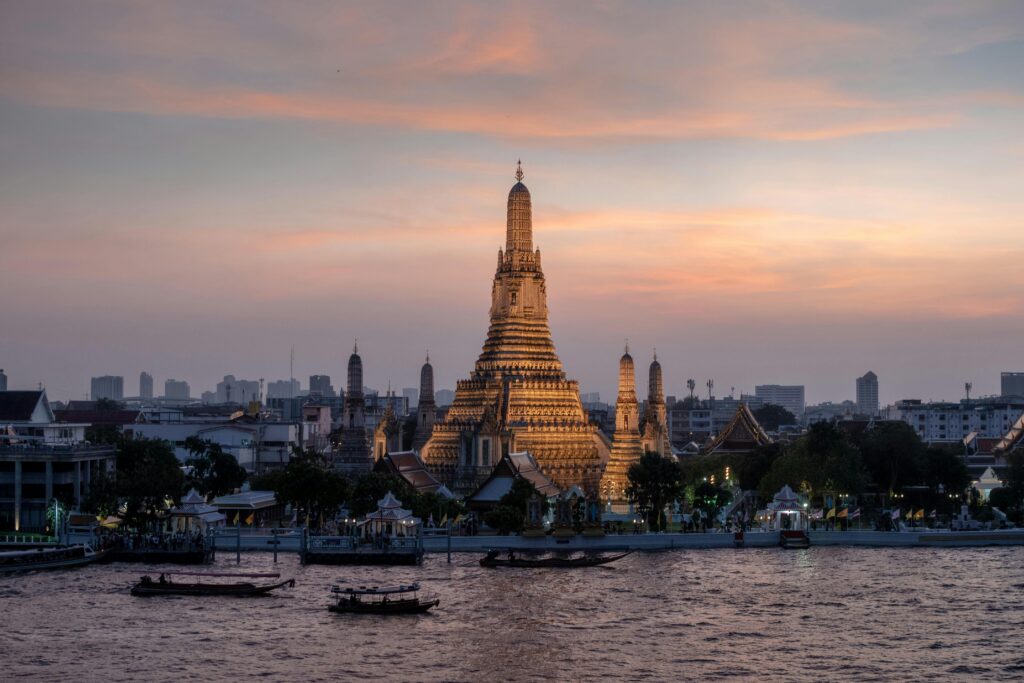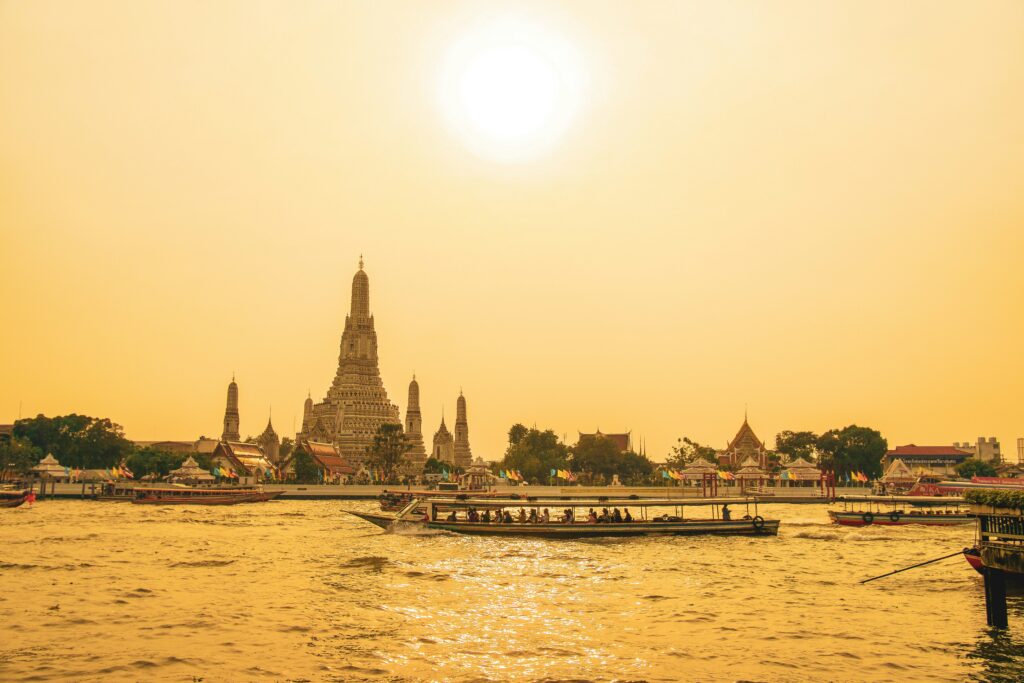7 Reasons Why Rehab in Chiang Mai Is A Leading Rehab Destination

Chiang Mai is rapidly becoming a preferred destination for those in search of comprehensive rehabilitation solutions. As the demand for effective treatments in serene settings increases, rehab in Chiang Mai stands out for its unique blend of professional healthcare services and an environment that fosters healing. In particular, drug rehab in Chiang Mai has experienced a notable surge in popularity, drawing patients from around the world who seek specialized care and a fresh beginning. Let’s delve into the reasons behind Chiang Mai’s growing acclaim as a leading rehab destination.
Chiang Mai Is A Haven of Peace and Natural Beauty.
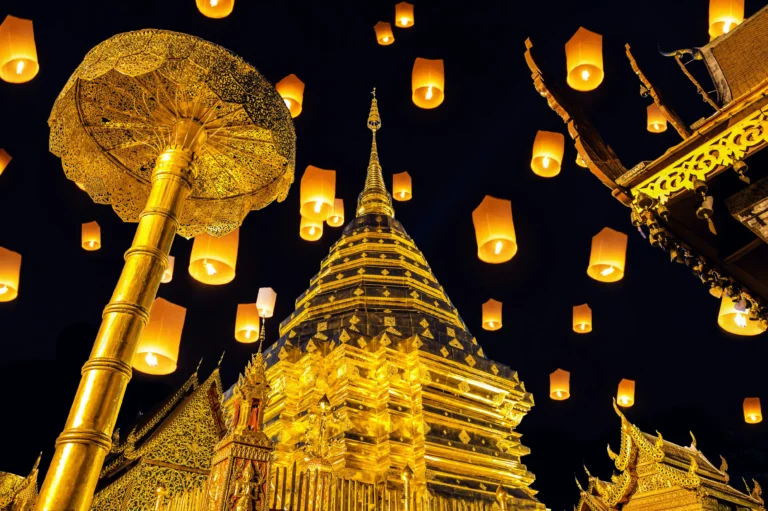
Chiang Mai’s environment is a natural oasis of calm, crucial for psychological and emotional recuperation. The city is enveloped by rolling mountains and forests, offering breathtaking views and a peaceful atmosphere that you can feel in the air. Among these natural wonders is the famous Doi Suthep mountain, home to the sacred Wat Phra That Doi Suthep temple, which provides a spiritual retreat and panoramic views of the city. The nearby Doi Inthanon National Park, known as the “roof of Thailand,” features majestic waterfalls, hiking trails, and the highest peak in the country, ideal for reconnecting with nature.
Holistic Rehabilitation Solutions in Chiang Mai
Chiang Mai’s rehabilitation is defined by its comprehensive philosophy, which goes far beyond traditional treatment methods. Rehab centers in Chiang Mai skillfully combine modern medical treatments with an array of traditional Eastern therapies. For instance, patients might receive Thai herbal medicine, known for its natural healing properties, alongside therapeutic massages that release physical and emotional tension. Energy healing techniques such as Reiki are also commonly used to restore balance and promote inner peace.
In addition to these traditional methods, the rehab in Chiang Mai is one of the ideal treatment facilities for addiction. They incorporate Western medical practices including psychotherapy, cognitive-behavioral therapy (CBT), and group counseling. This integration ensures multidimensional treatment methods and drug treatment in Chiang Mai addresses the physical symptoms and the psychological underpinnings of addiction and mental health issues. Moreover, patients are actively encouraged to engage with different facets of health care, which may include nutritional counseling, physical fitness regimes, mindfulness meditation, and art therapy. The goal is to empower patients to make positive life changes.
Chiang Mai Offers Affordable Care With High Quality.

Thanks to Thailand’s lower cost of living and healthcare expenses, Chiang Mai Thailand rehab can offer luxurious accommodations, personalized care plans, and access to skilled professionals at the price one might pay in the West. For example, a month-long stay in a high-quality rehab facility in Chiang Mai can cost anywhere from $8,500 to $17,000, depending on the level of luxury and the specifics of the treatment program. In contrast, similar services in the U.S. or Europe could easily range from $20,000 to $40,000.
Many rehab centers feature resort-like amenities, including private rooms, gourmet meals prepared by expert chefs, and garden spaces. These facilities often resemble high-end resorts with accommodations, swimming pools, fitness centers, and spa services. This affordability also extends to long-term stays, making it feasible for patients to receive extended care as needed to support their long-term rehabilitation.
Attentive Care from Chiang Mai’s Skilled Professionals
The healthcare professionals in Chiang Mai are highly qualified while genuinely caring. The staff at these centers often include a blend of Thai and international experts, bringing a wealth of global perspectives and specialized skills in both modern and traditional therapeutic techniques. This diversity in expertise allows them to tailor treatment plans to the specific needs and cultural backgrounds of each patient, which enhances the effectiveness of the care provided. Patients are treated with a kind of attentive care that makes them feel valued and understood, fostering a trusting relationship between caregivers and those in recovery.
Moreover, many professionals in these centers have undergone specialized training in dealing with a wide range of conditions, from substance abuse to emotional and behavioral issues. This ensures that they are well-equipped to handle various aspects of rehabilitation. Regular training sessions and workshops are also common, keeping the staff up-to-date with the latest methods and research in mental health and holistic care.
Rehab in Chiang Mai Has A Supportive Expat Community.
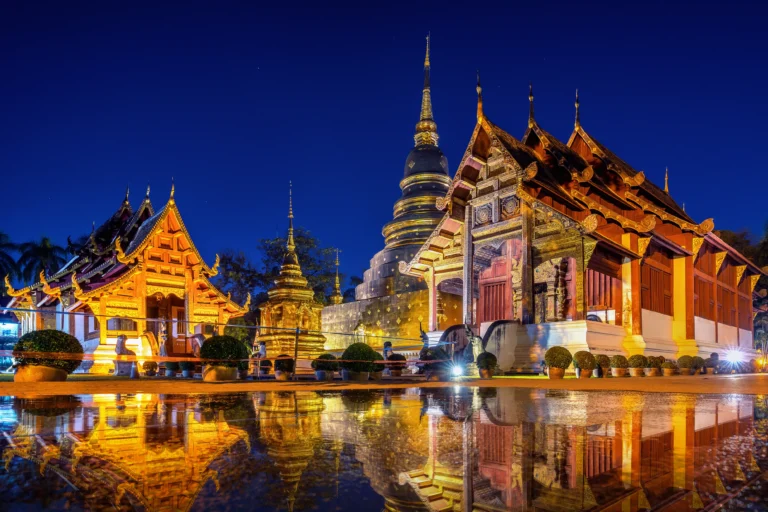
Home to a diverse population of foreigners, Chiang Mai offers a well-established network of support groups, community organizations, and social activities. This community is a resource for newcomers, providing emotional support and a platform for sharing experiences and coping strategies. Participating in group meetings, community events, and recreational activities such as hiking, art classes, or local excursions allows individuals to connect with others who are facing similar challenges. For many, these relationships evolve into lifelong friendships, anchored in shared experiences and mutual support.
Moreover, the expat community in Chiang Mai often collaborates with local health professionals and rehab centers to organize workshops, seminars, and wellness retreats that focus on various aspects of health and recovery. This collective recovery program helps mitigate the feelings of isolation that can accompany the recovery process, making Chiang Mai a uniquely supportive environment for rehab treatment and personal growth.
Chiang Mai Rehab Centers Offers Privacy and Seclusion.
Chiang Mai allows individuals undergoing rehabilitation to maintain a low profile, which can be crucial for those concerned about public exposure. Many Chiang Mai rehab centers are strategically located in areas that leverage the natural beauty and seclusion of the region to provide a peaceful retreat from the outside world.
For instance, some centers are placed in the surrounding mountains, such as those near the Doi Suthep-Pui National Park. Others might be set amidst rice fields and traditional Thai villages in the countryside around the city, where the pace of life is slow, and the surroundings promote tranquility. Additionally, the use of private transport services for patients, and the provision of in-house amenities such as gyms, spas, and private dining facilities, ensure that individuals can receive comprehensive care without needing to venture into public spaces. This helps in maintaining anonymity and significantly reduces the stress associated with rehab sessions.
You Can Access to Cutting-Edge Research and Techniques.
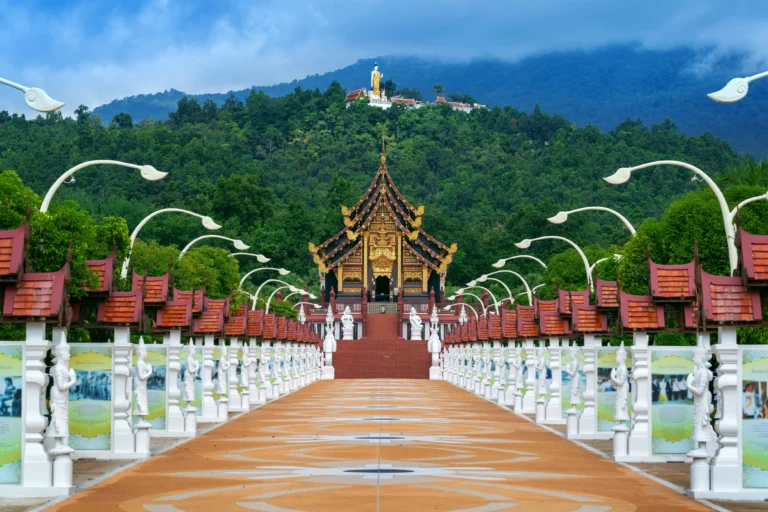
Chiang Mai is a hub for medical and wellness innovation. The city’s healthcare facilities are involved in ongoing research and development in the field of rehabilitation, drawing on both international and local expertise. Rehab Chiang Mai Thailand is often quick to adopt new and effective treatment methodologies and technologies, ensuring that they offer the most up-to-date care possible. Patients have access to advanced therapies such as biofeedback and neurofeedback, which are among the mental health treatments that can significantly improve rehab outcomes.
Moreover, these facilities often collaborate with renowned medical institutions and specialists around the world. Such partnerships bring new therapeutic options to the local scene, ensuring that the care provided is based on the latest research and global best practices. This global collaboration and commitment to staying current with medical advancements enrich the quality of care.
Why Jintara Rehap Is the Best Choice in Chiang Mai?
Jintara Rehab, a Chiang Mai Thailand rehab center, has become a premier rehabilitation facility in Chiang Mai. At Jintara, the focus is on providing personalized care that addresses the physical, mental, and emotional aspects of rehabilitation. Here’s why Jintara Rehab is the best rehab center in Chiang Mai.
- Jintara Rehab offers a blend of evidence-based Western medical practices and traditional Eastern wellness practices. This includes psychotherapy, Cognitive Behavioral Therapy (CBT), yoga, meditation, and Thai herbal medicine, addressing both physical and mental health.
- Located in the peaceful countryside of Chiang Mai, Jintara provides a setting ideal for reflection and healing. The natural surroundings contribute to a calming atmosphere that enhances the recovery process.
- Clients can choose from various types of accommodations including private one-bedroom villas and luxury suites. Each is equipped with modern amenities and offers beautiful views of the natural landscape, providing a restful and private environment conducive to healing.
- The rehabilitation facility boasts a swimming pool, fitness center, and communal lounges, which support physical health and foster a sense of community among clients. These amenities help clients engage in social activities and fitness routines as part of their rehabilitation.
- Jintara utilizes the latest therapies and techniques in addiction and mental health treatments. This commitment ensures that clients receive the most effective care possible.

Jintara Rehab is equipped with all the essential treatment methods and resources necessary for a successful and sustainable recovery. Whether you are dealing with addiction, managing stress, or simply seeking a peaceful retreat, Jintara offers a personalized and supportive environment that fosters deep healing and personal growth.
As rehab centers in Chiang Mai, Thailand, continually upgrade their facilities and recovery programs, its reputation as a leading destination for rehabilitation is set to grow even further. With the reasons mentioned above, it’s clear why Chiang Mai is the ideal choice for those looking to restore their health and happiness.

Author: Darren G Lockie
Founder and CEO of Lanna Healthcare.





